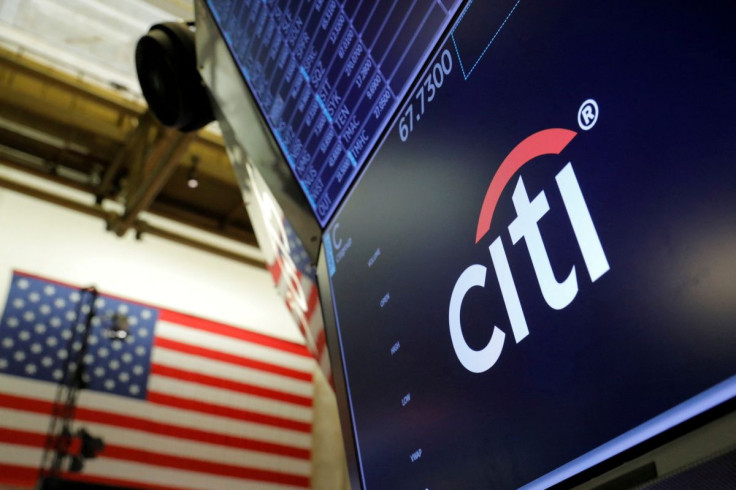Citigroup Readies Wide-ranging Plan To Win Over Skeptics

Citigroup executives will lay out detailed plans for generating better returns and address concerns over expenses at a shareholder meeting next month which analysts and investors say could determine its future.
The bank will set new targets for return on tangible common equity, a key measure of profitability, people familiar with the plan say. Key to achieving those goals will be a renewed focus on payments, commercial banking and wealth management.
The bank will also attempt to show investors that the cost of employing 4,000 people to comply with regulatory orders will produce cost savings and improved processes that will help drive future growth, according to Paco Ybarra, chief executive of Citigroup's Institutional Clients Group.
The March 2 investor day comes just over a year since 54-year-old Jane Fraser became chief executive at the fourth- biggest U.S. bank by assets. Fraser, a native of Scotland, was tasked with transforming a business whose share price lagged rivals like JPMorgan Chase & Co and Bank of America during her predecessor Michael Corbat's eight years at the helm.
Fraser acted swiftly to simplify the firm, announcing plans last April to exit non-core businesses, including consumer franchises in 13 markets across Asia, Europe, the Middle East and Africa. She doubled down in January - announcing plans to sell or spin off Citi's Mexican retail business, its largest consumer business outside of the United States.
However, investors remain unconvinced.
"People are incredibly skeptical," said long-time Citigroup investor Patrick Kaser, a portfolio manager at Brandywine Global Investment Management.
Citi's stock price is currently trading below the value of its assets, whereas most big banks trade at premiums to their book value. That piles the pressure on Fraser to present a plan that will restore investor confidence.
If she fails, the bank could face calls to be broken up, analysts say.
"This is the most important day of Jane Fraser's professional life," said Wells Fargo analyst Mike Mayo. "The purpose is to show why Citigroup has a reason to exist. The stock market says that Citigroup is worth more dead than alive."
Investors want Fraser to present a viable case that the bank can bring its expenses down, accelerate revenue growth and improve returns.
"If they could lay out a credible plan, the stock could move up 10% or more," said Kaser.
Executives need to show that, in two to three years, Citigroup can produce a 12% to 13% return on equity, said analyst David Konrad of Keefe, Bruyette & Woods.
That would still trail rivals but would be seen as achievable, he added.
PAYMENTS
Growing the global payments business, known as Treasury and Trade Solutions, is central to Fraser's strategy. It requires relatively little capital for the returns it can produce, and can facilitate cross-selling of other services, executives say.
"That business has significant potential going forward," said Ybarra.
Citigroup's payments business already leads rivals in catering to global corporations. The bank wants to expand it to serve commercial banking clients - mid-sized companies with annual revenue between $50 million and $2 billion and which do business internationally.
It also sees opportunities to grow payments services to governments, financial institutions and fintech companies, people familiar with the plan say.
Executives will explain how growing the payments, commercial and wealth businesses will help the rest of the bank.
"Investing in payments, commercial banking and wealth will strengthen our banking position," said Tyler Dickson, global co-head of the banking, capital markets and advisory businesses.
Citigroup's investment banking and trading businesses have not gained as much market share as other U.S. banks from European banks retreating, something executives are determined to change.
"We will invest in parts where we can gain revenue share on U.S. competitors," said Dickson.
A BETTER PLACE
U.S. bank regulators fined Citigroup $400 million in October 2020 for failing to correct "longstanding deficiencies" in its risk and control systems, and ordered the lender to upgrade its processes and technology.
The bank saw its annual expenses rise 9% to $48 billion in 2021, partly due to the cost of complying with the orders.
Citigroup executives will make the case that the investment will pay off in the longer term.
"When we succeed in delivering what regulators are asking, we are going to be in a better place," said Ybarra, whose businesses in investment banking, trading, corporate banking and services contribute almost two-thirds of Citigroup's core revenue in the re-shaped group.
"It is forcing us to fix some deeper issues in our infrastructure and data that would have taken more time."
Citi executives will discuss how they plan to strike a balance between returning capital and investing in growth.
"It is good that we only retain capital that we think is going to produce decent returns," said Ybarra. "That tendency is particularly strong for us because of where our stock price is."
Fraser's strategy will not deliver immediate results. Completing the sales of the Asia and Mexico consumer businesses, for example, could take two years. Its long-suffering investors are unlikely to show patience.
"They've built up this investor day," said Konrad. "There has to be a pretty big sense of urgency."
© Copyright Thomson Reuters 2024. All rights reserved.





















